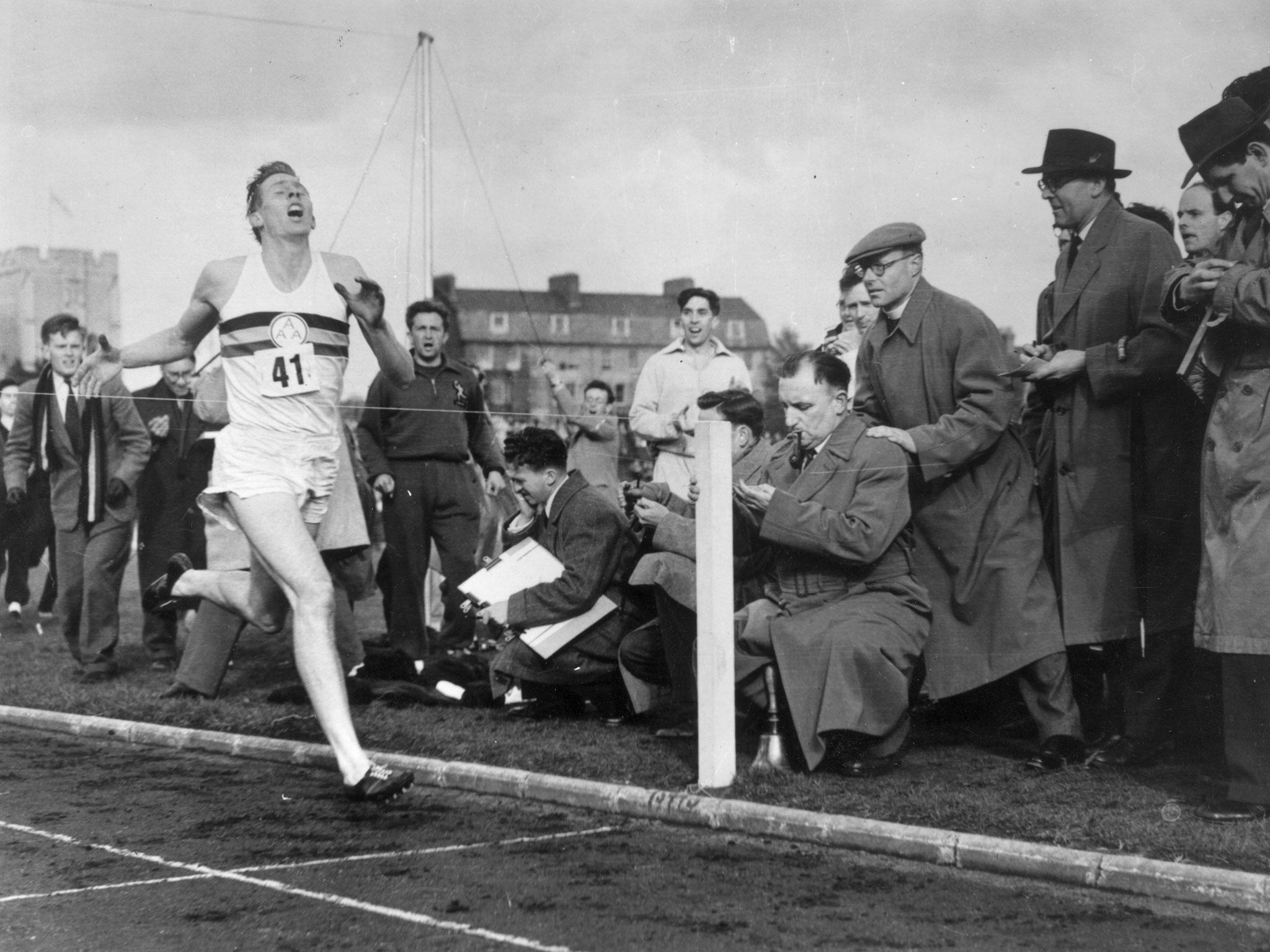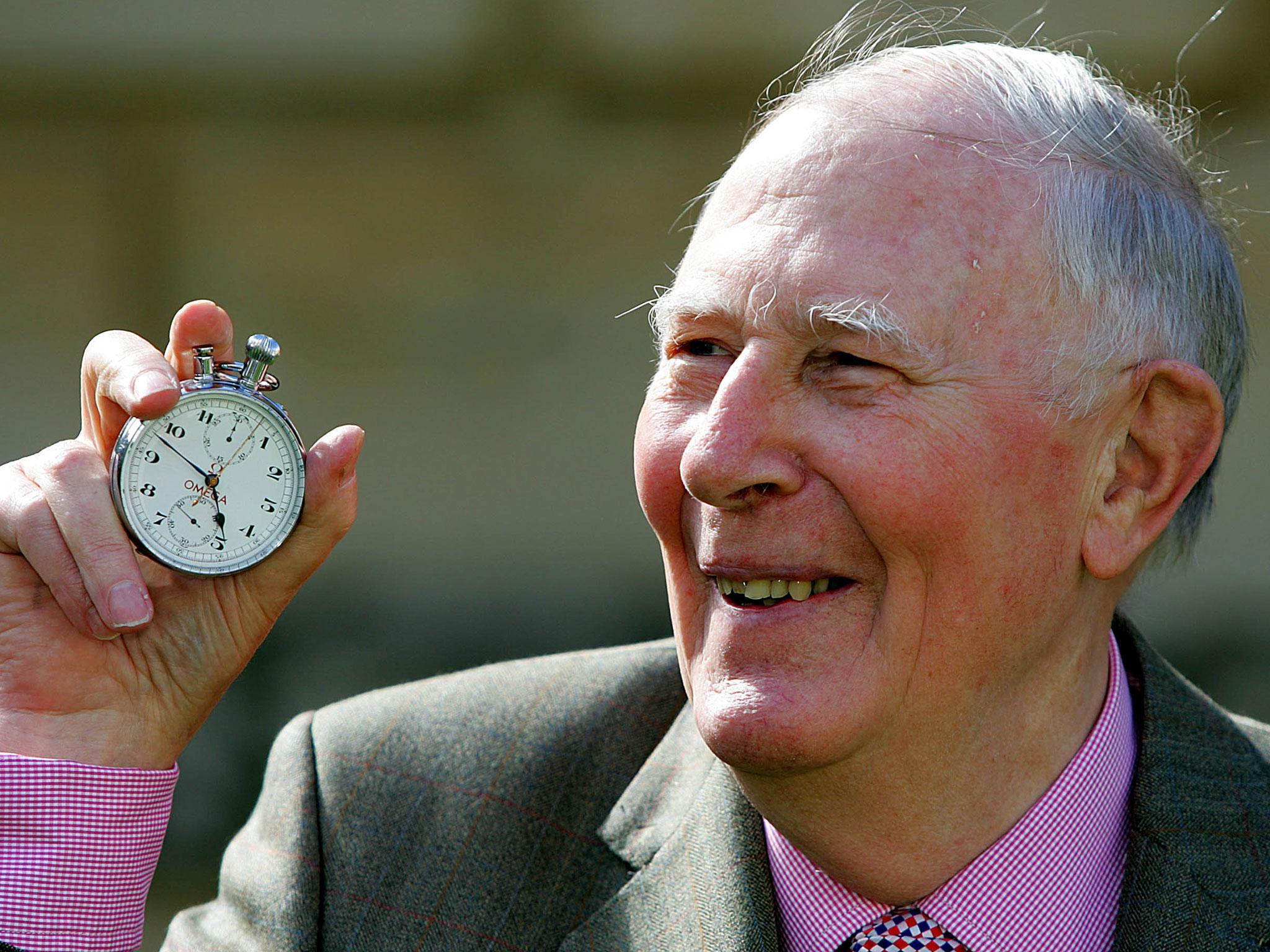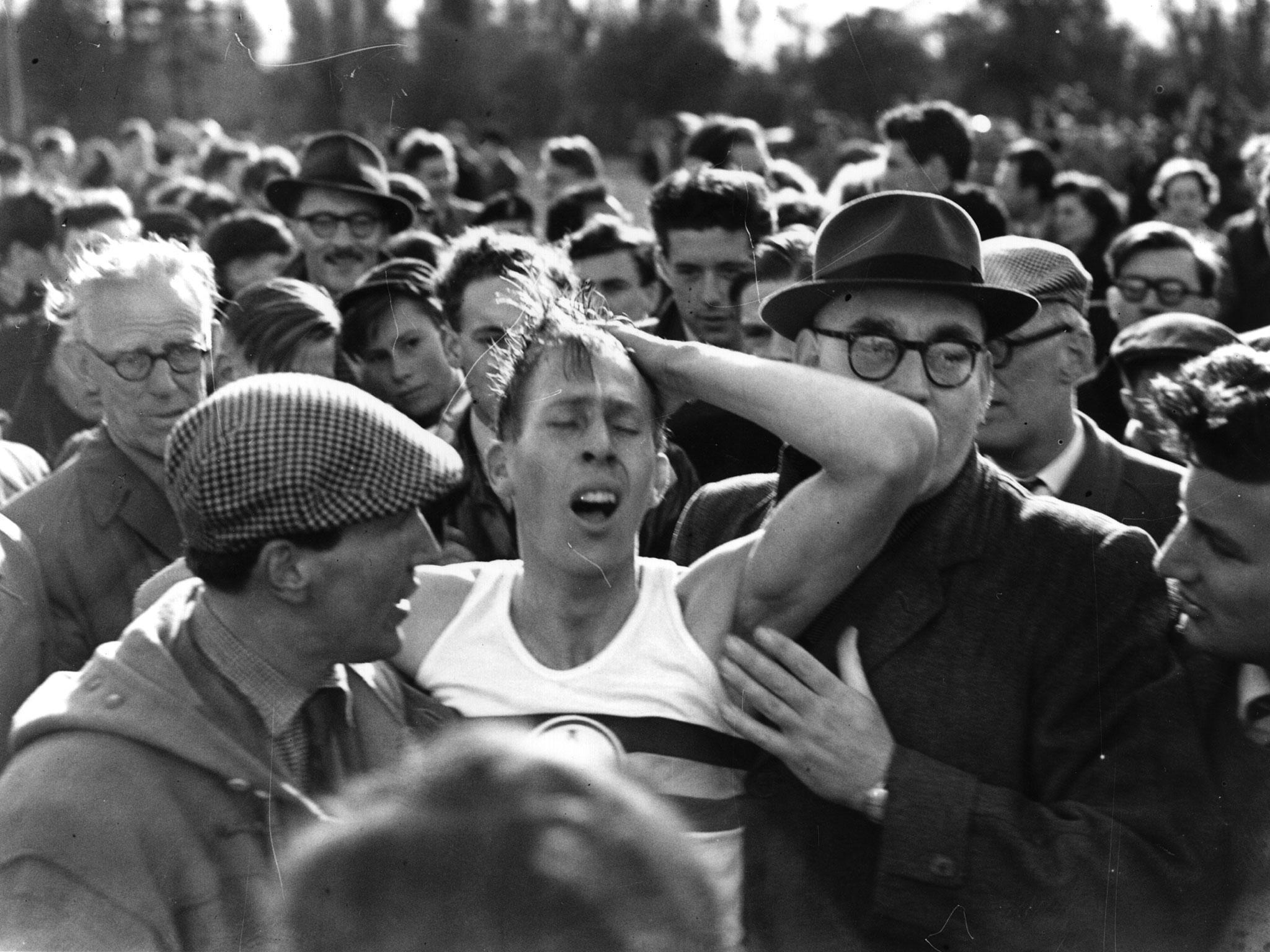Sir Roger Bannister dead: Athlete who broke four-minute mile dies aged 88
Sir Roger gave up running to pursue long and distinguished medical career

Your support helps us to tell the story
From reproductive rights to climate change to Big Tech, The Independent is on the ground when the story is developing. Whether it's investigating the financials of Elon Musk's pro-Trump PAC or producing our latest documentary, 'The A Word', which shines a light on the American women fighting for reproductive rights, we know how important it is to parse out the facts from the messaging.
At such a critical moment in US history, we need reporters on the ground. Your donation allows us to keep sending journalists to speak to both sides of the story.
The Independent is trusted by Americans across the entire political spectrum. And unlike many other quality news outlets, we choose not to lock Americans out of our reporting and analysis with paywalls. We believe quality journalism should be available to everyone, paid for by those who can afford it.
Your support makes all the difference.Sir Roger Bannister, the British athlete who became the first man to break the four-minute mile, has died in Oxford at the age of 88, his family have announced.
A statement released on behalf of his family said: "Sir Roger Bannister, died peacefully in Oxford on 3 March 2018, aged 88, surrounded by his family who were as loved by him, as he was loved by them.
"He banked his treasure in the hearts of his friends."
On 6 May, 1954, he became the first athlete to run a mile in under four minutes, clocking a time of three minutes and 59.4 seconds at Iffley Road sports ground in Oxford.
"It's amazing that more people have climbed Mount Everest than have broken the four-minute mile," he told The Associated Press in 2012.
A few months later, Sir Roger beat his Australian rival, John Landy, in the "Miracle Mile" or "Mile of the Century" at the Empire Games in Vancouver, British Columbia, as both men ran under four minutes.

Sir Roger retired from competitive running to pursue a long and distinguished medical career as a neurologist.
As chairman of the Sports Council between 1971 and 1974, he developed the first test for anabolic steroids.
"None of my athletics was the greatest achievement," he said. "My medical work has been my achievement and my family with 14 grandchildren. Those are real achievements."

In 2011, he was diagnosed with Parkinson's disease.
Prime Minister Theresa May remembered Sir Roger as a "British sporting icon whose achievements were an inspiration to us all. He will be greatly missed."
Lord Coe, president of the IAAF, also paid tribute.
"On the 6 May 1954, Roger made the impossible possible," he said at an IAAF event.
"One year after the coronation of a young Queen Elizabeth II and after man conquered Everest, Roger Bannister ran the first sub-four-minute mile with the help of his friends Chris Chataway and Chris Brasher.
"The world's best runners had been attempting the four-minute barrier for a quarter of a century. It was as much of a psychological barrier as it was a physical barrier. Bannister's assault allowed mankind to enter a world filled with new possibilities.
"His achievement transcended sport, let alone athletics. It was a moment in history that lifted the heart of a nation and boosted morale in a world that was still at a low ebb after the war.
"We have all lost a giant and, for many of us, a deep and close friendship."

Steve Cram, another British mile world record breaker, said on BBC Radio 5 Live: "To have Roger Bannister as a Brit having done that was something I used so often over the years to inspire me individually. I wanted to be a great British miler following in his footsteps."
Lord Patten of Barnes, the Chancellor of Oxford University, said: "He was not just one of the great athletes of the last century but a superb doctor and servant of Oxford University.
"He was a man of great distinction and honour in every sense. At the age of 88 he was still an active supporter of the University and we will miss him enormously.”
Professor Louise Richardson, the Vice-Chancellor, said: “Roger Bannister epitomised what it means to be a living legend.
"He was a regular presence at university events and remained committed to Oxford University to the end, engaging with students, challenging academics, and inspiring all of us.”
Join our commenting forum
Join thought-provoking conversations, follow other Independent readers and see their replies
Comments